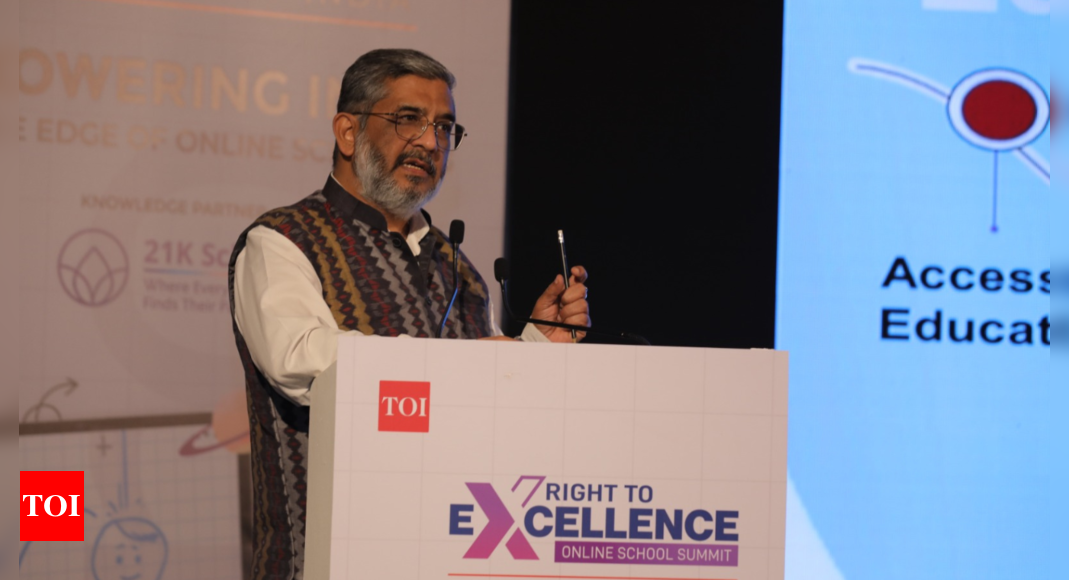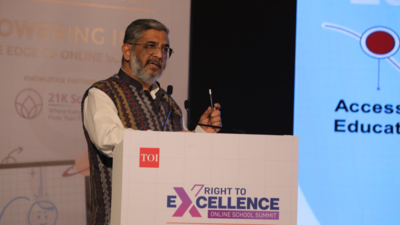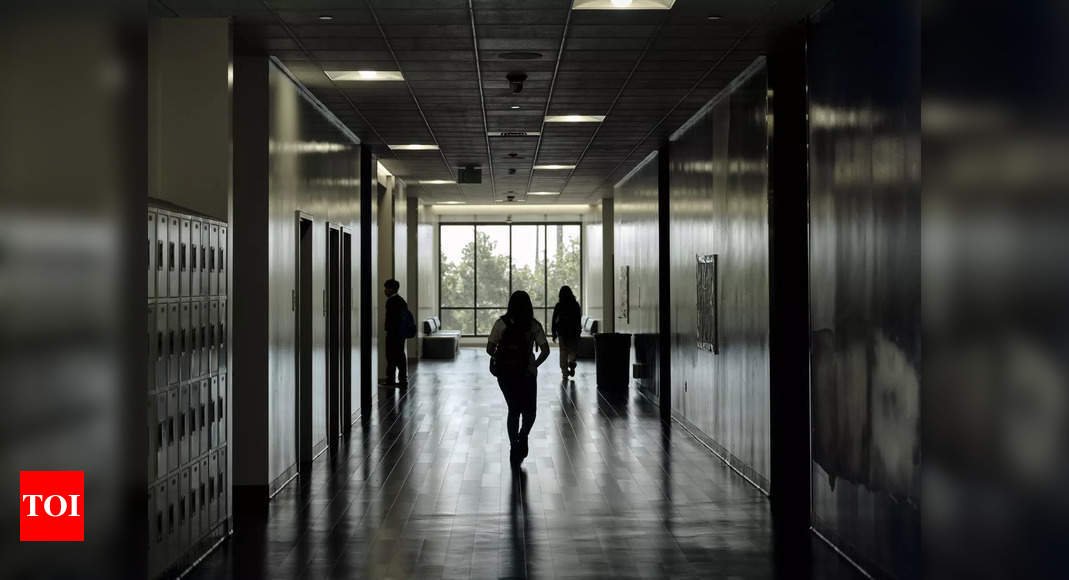Digital schooling has upended traditional education, eliminating geographical barriers and unlocking new learning opportunities. Yet, as online education cements its place in the mainstream, it raises pressing questions—how do we strengthen digital infrastructure? What makes virtual schools truly effective? And where do parents fit into this equation?
Enter the Right to Excellence Online School Summit, hosted by The Times of India along with 21K School, a leading online education platform. Held today, February 12, in New Delhi, the summit wasn’t just another education conference—it was a pulse check on the future of learning.
The summit featured high-stakes discussions on strengthening digital infrastructure, enhancing online schooling experiences, and evaluating parental perspectives in virtual education. As online schooling continues to redefine learning accessibility, stakeholders debated its challenges and the urgent need for policy interventions.
Prof. Pankaj Arora, Chairperson of the National Institute of Open Schooling (NIOS) and Chairman of the National Council for Teacher Education (NCTE), delivered the keynote address, emphasizing the role of digital education in shaping India’s future learning ecosystem.
The evolving role of digital education
Arora underscored the need for accessible and high-quality online education, aligning with the principles of NEP 2020. “Quality education should not only be accessible but also affordable to everyone in society,” he stated, emphasizing that true accessibility goes beyond mere availability—it must also uphold educational excellence. “And that is precisely why we are here today—to discuss the right to excellence in online school education,” he added.
Arora highlighted the pressing need for accessibility, equity, and the integration of technology in education, especially in a rapidly evolving society. “Education must evolve to equip learners with the skills and mindset needed for the future,” he observed.
Open schooling and the democratization of education
Discussing the concept of open schooling, he explained that it eliminates rigid structures—no fixed boundaries, no formal timetables, and no predetermined examination schedules. “Students can choose when to take exams, select subjects based on their interests and potential, and learn at their own pace,” he explained.
Drawing from his own experiences with open schooling, Arora highlighted the transformative power of online education, emphasizing its similarities in flexibility, accessibility, and learner-driven approach. “I see online education as a platform that democratizes learning, allowing people to engage in open discussions and explore ideas freely,” he said. However, he acknowledged the hurdles that come with this shift.
Teacher training: The need of the hour
As he prepared to share his insights, Arora emphasized the need to balance the strengths and limitations of online education. “There are barriers that restrict its full potential, but one thing remains critical—the role of teacher education in shaping the future of online learning,” he added.
Stressing the need for robust teacher training in online education, Arora underscored that digital pedagogy is the “need of the hour” and that structured capacity-building programs are crucial to overcoming the challenges of virtual learning.
“Adults often have mental blocks and reservations about online education. That’s why teacher training in digital pedagogy, cyber safety, and innovative assessment techniques is critical,” he said.
Arora pointed to NCTE’s upcoming initiatives, including integrated teacher education modules with a strong focus on technology-driven pedagogy. He called for collaborative partnerships across regions to ensure uniform access to digital training resources.
“Teachers remain at the core of the learning process—no algorithm can replace a well-trained educator,” he asserted. He further highlighted NCTE’s role in equipping educators through hands-on digital training and practical exposure for students, emphasizing that education must evolve with changing times to remain relevant and effective.
The road ahead: Blended learning and policy interventions
As the Right to Excellence Online School Summit drew to a close, one message stood out—online education is no longer a fringe alternative but a fundamental pillar of the future learning ecosystem. “We must acknowledge that the debate between online and offline education is now obsolete. The future lies in a blended model that combines the best of both worlds,” said Arora.
While digital schooling has unlocked unprecedented opportunities, its success hinges on sustained policy action, robust teacher training, and the seamless integration of technology. The discussions at the summit made it clear that the path forward demands a blended approach—one that leverages both online and offline strengths to create a more inclusive, flexible, and high-quality education system. As stakeholders push for innovation and reform, the challenge now is to turn these insights into actionable strategies that will shape the next era of learning in India.




